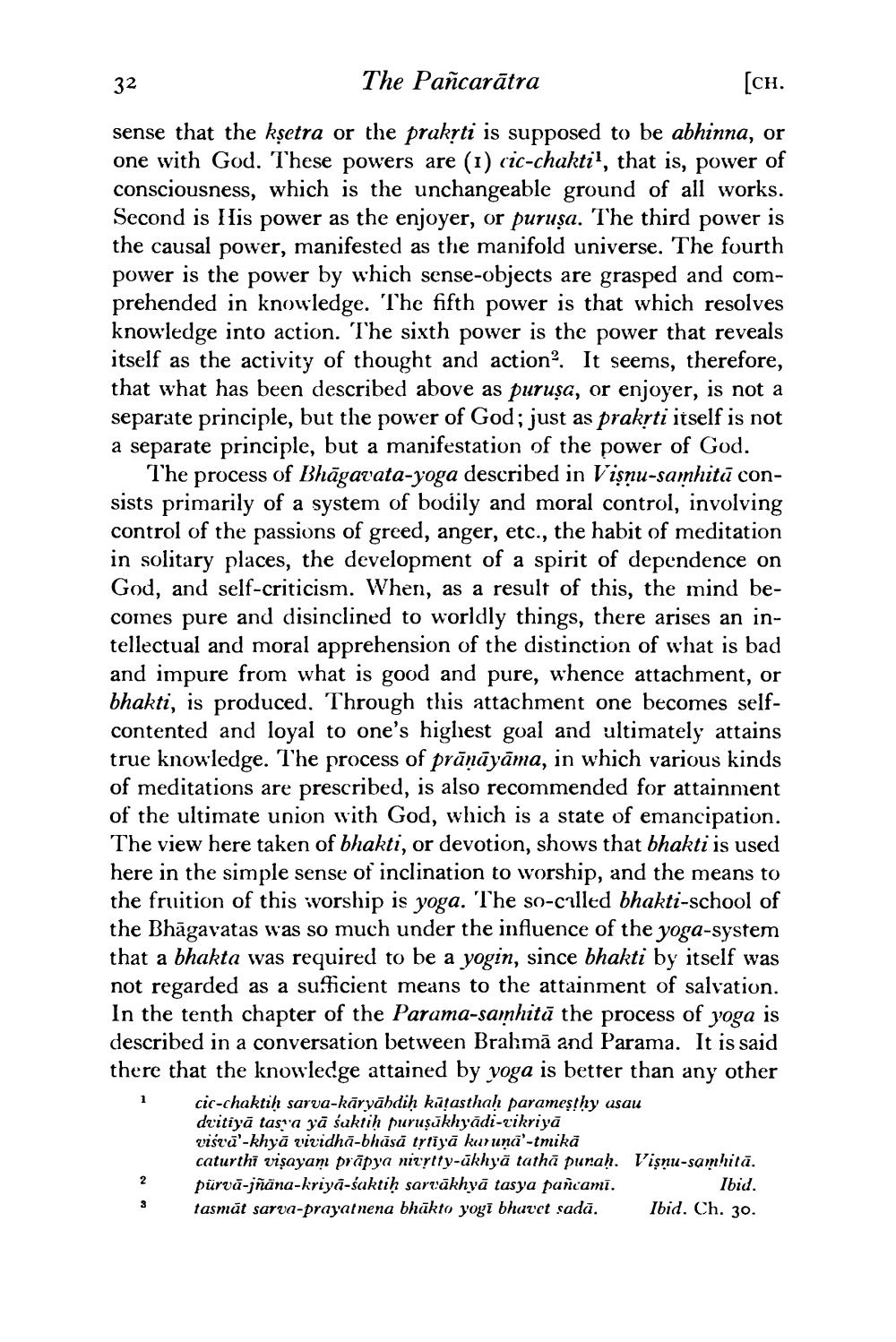________________
32
The Pañcarātra
[CH.
sense that the kşetra or the prakti is supposed to be abhinna, or one with God. These powers are (1) cic-chakti', that is, power of consciousness, which is the unchangeable ground of all works. Second is flis power as the enjoyer, or purușa. The third power is the causal power, manifested as the manifold universe. The fourth power is the power by which sense-objects are grasped and comprehended in knowledge. The fifth power is that which resolves knowledge into action. The sixth power is the power that reveals itself as the activity of thought and action?. It seems, therefore, that what has been described above as puruşa, or enjoyer, is not a separate principle, but the power of God; just as prakrti itself is not a separate principle, but a manifestation of the power of God.
The process of Bhāgavata-yoga described in Vişnu-samhitū consists primarily of a system of bodily and moral control, involving control of the passions of greed, anger, etc., the habit of meditation in solitary places, the development of a spirit of dependence on God, and self-criticism. When, as a result of this, the mind becomes pure and disinclined to worldly things, there arises an intellectual and moral apprehension of the distinction of what is bad and impure from what is good and pure, whence attachment, or bhakti, is produced. Through this attachment one becomes selfcontented and loyal to one's highest goal and ultimately attains true knowledge. The process of prānāyāma, in which various kinds of meditations are prescribed, is also recommended for attainment of the ultimate union with God, which is a state of emancipation. The view here taken of bhakti, or devotion, shows that bhakti is used here in the simple sense of inclination to worship, and the means to the fruition of this worship is yoga. The so-called bhakti-school of the Bhāgavatas was so much under the influence of the yoga-system that a bhakta was required to be a yogin, since bhakti by itself was not regarded as a suficient means to the attainment of salvation. In the tenth chapter of the Parama-sainhitā the process of yoga is described in a conversation between Brahmā and Parama. It is said there that the knowledge attained by yoga is better than any other
cic-chaktih sarva-kāryābdiḥ kūtasthah paramesthy asau dvitiyā tas 'a jā saktih puruşukhyādi-vikriyā visvā'-khyā vividha-bhāsă trtīyā kuruna'-tmikä caturthi vişayan prāpya nivytty-ukhyā tathā puraḥ. Vişnu-samlitā. purvā-jñāna-kriya-saktiḥ sarvākhyā tasya pancami.
Ibid. tasmāt sarva-prayatnena bhākto yogi bhavet sadā. Ibid. Ch. 30.




